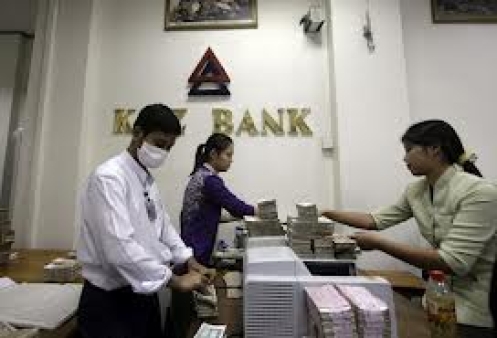
Myanmar to reform banking system
Myanmar has set its sights on overhauling its battered and distrusted banking system.
Rajiv Biswas, economist at research group IHS Global Insight, said parliament is likely to give the green light for joint ventures this year and enable foreign banks to open branches in 2015.
He added that the country’s failure to open up the sector so far has prevented “foreign capital, technology and innovation from strengthening Myanmar’s banking industry.”
The measure will be “a first step in a broader financial sector reform” geared at “strengthening and liberalizing” Myanmar’s enfeebled banking sector, said Biswas.
Myanmar currently has 19 private banks, as well as four state lenders, but these are “relatively weak in term of capitalization”, according to Romain Caillaud, Myanmar director of business advisory firm Vriens & Partners.
Strict regulations from the central bank — including a ban on loan terms of more than one year and the imposition of fixed interest rates — have also strangled competition among private lenders, he added.
State banks are not subject to the same rules, but they effectively repel borrowers with prohibitively high risk valuations for loans.
Only between one and two million of the nation’s 60 million people use bank services, according to Ye Min Oo, managing director of Asia Green Development Bank, one of the country’s private lenders.
Another major problem is the lack of bank branches.
Ye Min Oo said in total there are around 400 branches across Myanmar — a country equivalent in size and population to France which has around 39,000 outlets.
“Most ordinary people think banks are nothing to do with them,” he said, urging the roll out of more branches “to encourage economic development”.
“They [private banks] cannot support businesses to perform at an international standard,” said Hnin Oo, vice chairman of the Myanmar Fisheries Federation.
Hope for change lies in the opening of the sector to foreign banks with financial muscle and industry expertise.
Minister for Finance Win Shein suggested in October that overseas firms could be allowed into the country in
stages. An initial phase would be the creation of joint ventures between foreign and domestic banks, with the eventual aim of fully opening the country to subsidiaries of outside lenders.
Foreign banks can currently only open representative offices without actually providing services.
For more.






















 Advertise
Advertise








